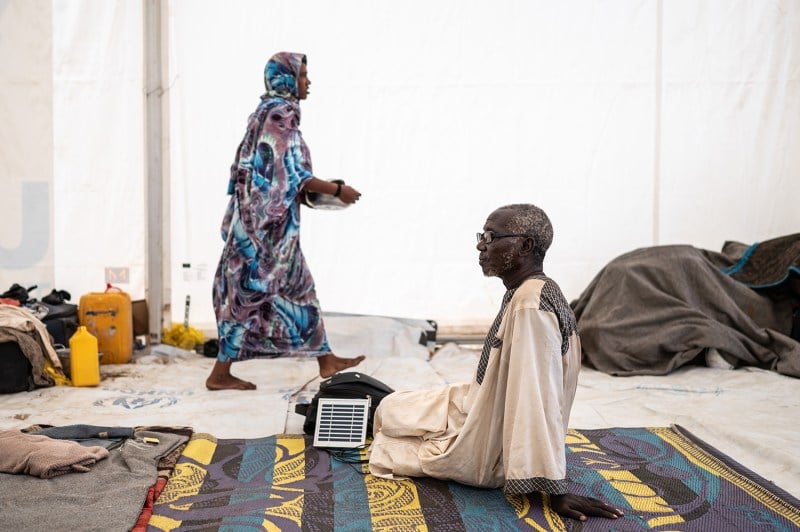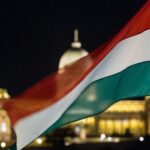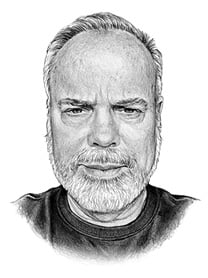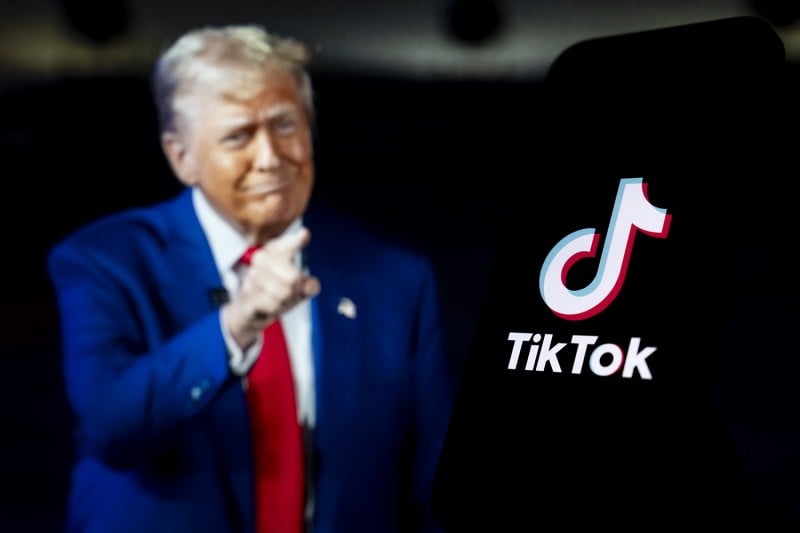South Sudan Is Returning to War

South Sudan Is Returning to War
Recent fighting and the arrest of opposition leaders has put a spotlight on the country’s worsening interethnic tensions—and the fragility of its 2018 peace agreement.
Sudanese refugees are seen inside a tent at the Gorom refugee settlement on the outskirts of Juba, South Sudan, on Feb. 27. Wang Guansen/Xinhua via Getty Images
South Sudan has once again returned to the brink of war, the United Nations warned on March 24. The country had made international headlines earlier in March after members of an ethnic militia attacked a U.N. helicopter in Nasir, a town rocked by fighting between the South Sudanese national army and a local rebel militia called the White Army. The U.N. peacekeeping mission was trying to evacuate a government army general and his soldiers when members of the White Army—largely from the Nuer ethnic group—shot at them, killing 28 people, including a U.N. crew member.
The South Sudanese government, headed by President Salva Kiir, blamed the attack on Juba’s main opposition party, led by Vice President Riek Machar, and arrested its leadership—including Machar himself—either detaining them or placing them under house arrest.
South Sudan has once again returned to the brink of war, the United Nations warned on March 24. The country had made international headlines earlier in March after members of an ethnic militia attacked a U.N. helicopter in Nasir, a town rocked by fighting between the South Sudanese national army and a local rebel militia called the White Army. The U.N. peacekeeping mission was trying to evacuate a government army general and his soldiers when members of the White Army—largely from the Nuer ethnic group—shot at them, killing 28 people, including a U.N. crew member.
The South Sudanese government, headed by President Salva Kiir, blamed the attack on Juba’s main opposition party, led by Vice President Riek Machar, and arrested its leadership—including Machar himself—either detaining them or placing them under house arrest.
The event put a spotlight on South Sudan’s worsening interethnic tensions as well as the fragility of the 2018 peace agreement that mapped out a system of shared governance between Kiir’s government—which is largely aligned with the Dinka, the largest ethnic minority in a country of more than 60 ethnic groups—and Machar’s opposition group, the Sudan People’s Liberation Army-In Opposition (SPLA-IO), the leadership of which largely hails from the Nuer community, the country’s second-largest ethnic minority.
But make no mistake: War never stopped in South Sudan, and the peace agreement was already under threat. Though the recent fighting flared up in the country’s oil-rich Upper Nile region, government military troops have also geared up their attacks on the SPLA-IO in other regions.
In January, displaced people fleeing the state of Western Equatoria reported that government forces had attacked opposition troops there. A month later, they targeted the governor of the SPLA-IO-held state, forcing him into hiding. In February, locals also accused government forces of attacking opposition troops in Bahr el-Ghazal. Kiir’s government has also arrested opposition figures in recent months and been accused of supporting the targeting of non-Dinka communities in both states—violating the power-sharing terms of the peace agreement and leading to renewed fears of broader ethnic violence.
Most recently, in the lead-up to the March 7 U.N. helicopter incident in Nasir—when the White Army killed the Dinka general and U.N. worker, among others—government troops attacked local Nuer market-goers and injured a U.N. peacekeeper in the same town.
The Nuer militia has had a complicated relationship with Machar, who has previously asserted control over the group to boost his profile. Though the White Army was initially founded as a community defense militia, it has offered crucial support to Machar’s SPLA-IO opposition force. Back in 2014, the SPLA-IO leadership even admitted to the New York Times that the Nuer militia had provided up to 80 percent of its troops in the Upper Nile State.
However, since then, the SPLA-IO has ended up with much less control and command over the White Army as it pursued its own agenda of revenge against the Dinka state troops, some of whom killed thousands of Nuer in a massacre in the capital city of Juba in 2013. Meanwhile, Machar’s waning political influence has only diminished his already limited ability to offer the militia crucial resources, such as weapons, ammunition, and coordination with other troops.
Machar’s popularity within the opposition has also declined since 2018 over the lack of implementation of the peace agreement’s security arrangements, which has triggered desertions by SPLA-IO soldiers. Some senior officers have also defected to Kiir’s government over Machar’s choices of political appointees.
Yet with repeated violations of the peace agreement primarily driven by the government, the eventual attack by the White Army on the U.N. helicopter has become a political gift for Kiir. Despite the White Army issuing a statement denying its affiliation to Machar, Kiir and the army have capitalized on Machar’s past claims of control over the White Army to attack him and other opposition members in Juba—in turn blaming them for the collapse of the peace agreement.
Machar’s arrest on March 27 now amounts to his de facto removal from his position as vice president—the ultimate violation of the peace agreement.
The government had already started bombarding the White Army’s strongholds in the Upper Nile region in February. Following the recent flare-ups, the president also dismissed the governor of the state in mid-March. But the situation in Nasir is just one of the factors driving Kiir’s escalation policy.
The regime in Juba is increasingly unstable—threatening the president’s grip on power and prompting attempts to restore control. Kiir’s health has reportedly worsened since 2022, limiting his public appearances. In October, he dismissed his own intelligence chief and competitor, Akol Koor; placed him under house arrest; and replaced Koor with one of his loyalists in a bid to reassert control over Koor’s former agency—the National Security Services, arguably the best equipped and best funded armed force in South Sudan.
This wasn’t the first time that Kiir has sacked a rising competitor he felt threatened by—he dismissed Army Chief Paul Malong, seemingly for the same reasons, in May 2017.
In a major shake-up in February, Kiir also fired James Wani Igga, the second vice president and the secretary-general of his party, the Sudan’s People Liberation Movement—replacing him with Benjamin Bol Mel, a businessman who is also Kiir’s son-in-law.
Bol Mel, who is sanctioned by the U.S. government over allegations of corruption, has been accused of benefitting from government contracts worth tens of millions of dollars. Kiir’s overt promotion of Bol Mel, considered a relatively junior figure also created further political instability by angering many across the army, the National Security Services, and the governing Sudan’s People Liberation Movement, according to a source in the area who wished to remain anonymous for fear of retribution.
Meanwhile, the government only recently paid its public servants, including soldiers, after they had gone without paychecks for more than a year. Following the recent spate of fighting in Nasir, some government soldiers have refused deployment to Upper Nile to fight the White Army, and some have even publicized the decision on social media. Many are deserting their posts.
With conflict raging in neighboring Sudan, the South Sudan’s poverty rate has risen to an estimated 92 percent due to the disruption in oil production, which makes up more than 90 percent of the country’s national revenue.
The people of South Sudan are under no illusion. They know that the peace deal is effectively dead and that there will be no elections as scheduled in 2026. They are increasingly worried about new waves of ethnic killings across the country. The source on the ground, who wishes to remain anonymous for fear of retribution, reports that at border points, Nuer men have been prevented from leaving the country, and that government soldiers near recently bombed SPLA-IO cantonment sites have started targeting civilians from non-Dinka ethnic groups that they associate with the opposition.
Increased instability has compelled Kiir to resort to Ugandan troops once again. From late 2013 to early 2014, Kiir had relied on the Ugandan People’s Defense Forces (UPDF) to stop the opposition from descending on Juba and ousting his regime. In July 2016, the UPDF officially evacuated Ugandan citizens from South Sudan but also continued to bolster Kiir’s regime after he orchestrated fighting with SPLA-IO troops in Juba.
Uganda views South Sudan as its backyard and Kiir as its protégé. UPDF chief Muhoozi Kainerugaba, the son of Ugandan President Yoweri Museveni, boasted in a since-deleted post on X about launching Operation “Mlinzi wa Kimya” (or “the silent protector” in Swahili) in South Sudan. (A separate post, in which Kainerugaba referred to Kiir as Museveni’s “younger brother,” remains up.)
Critics have also accused Kainerugaba of making posts that have incited further ethnic violence in South Sudan. Netherlands-based radio station Radio Tamazuj reported that on March 22, amid UPDF-supported government bombardments on Nasir and its civilian population, Kainerugaba posted on X: “I’m tired of killing Nuer. Tell your leader Riek Machar to kneel before ‘Our’ President H.E. Salva Kiir.” (The posts have since been deleted.)
The regional context only emboldens Kiir, who has used his country’s oil wealth to play both sides of Sudan’s war, a strategy shared by Museveni. South Sudan relies on Sudanese pipelines to export its crude oil from Port Sudan, which is controlled by the Sudanese Armed Forces . The Sudanese Armed Forces partly depend on South Sudan’s oil transit fees to fight their rival Rapid Support Forces (RSF). However, South Sudan’s oil is mortgaged to the RSF’s main backer, the United Arab Emirates (UAE), further complicating the situation.
South Sudan has also let the UAE, the country’s largest lender, build a hospital at the border of Sudan that is rumored to be treating RSF soldiers. The government has denied such allegations. But reports recently emerged that the South Sudanese government may have used the RSF to arrest SPLA-IO members in northern Upper Nile and target White Army men fleeing to Sudan. The wars in Sudan and South Sudan are now fully enmeshed.
The UPDF’s deployment since early March and its active participation to the war, bombarding Nasir along government military forces and reportedly using chemical weapons, only escalates South Sudan’s war into a regional conflict.
Kiir has most likely factored in the United States’ laissez-faire approach in his decisions. Back in December 2013, during the Juba massacre of thousands of ethnic Nuer civilians by largely Dinka state troops made up of several security organs, Canadian and American diplomats had played a critical role in saving some dual nationals by putting them on planes that evacuated them from Juba’s airport.
However, the South Sudanese government has recently ramped up its pressure on the United Nations to withdraw its presence from the vicinity of Juba’s airport and move to the far outskirts of the city—preventing the U.N. mission from witnessing as many of the state troops’ actions in the city. This could seriously curb its ability to offer lifesaving refuge to civilians fleeing government killings and debilitate other diplomatic missions’ operations as well.
Meanwhile, foreign governments, including those of Norway and Germany, have closed their embassies in Juba over fears of renewed civil war, and the United States has ordered all its nonessential staff to evacuate the country.
The arrests of prominent Nuer politicians, meanwhile, have reportedly accelerated and have even extended to their relatives in recent weeks.
After openly declaring its intention to dissolve the SPLA-IO and unify it with the government forces, on March 24, the government bombarded an SPLA-IO cantonment site just 18 miles west of Juba, in Wunliet. It reportedly repeated the exercise on Rajab, a training base for SPLA-IO located to the south of Juba, two days later.
In the meantime, Machar published a letter calling on the international community to stop Uganda’s military presence in South Sudan, arguing that it violates the 2018 peace agreement, likely leading to his recent arrest on accusations of attempting to stir rebellion.
History never exactly repeats itself. But there are currently no restraints on the government of South Sudan from returning to a full-blown war, and from targeting civilians based on their ethnicity—both in Juba and beyond.
Clémence Pinaud is an associate professor at Indiana University’s department of international studies and the author of War and Genocide in South Sudan.
More from Foreign Policy
-

An illustration shows a golden Cybertruck blasting through a U.S. seal of an eagle holding arrows and laurel. Is America a Kleptocracy?
Here’s how life could change for the rich, poor, and everyone in between.
-

The flag of the United States in New York City on Sept. 18, 2019. America Is Listing in a Gathering Storm
Alarms are clanging at the U.S. geographic military commands around the globe.
-

U.S. President Donald Trump shakes hands with Supreme Court Chief Justice John Roberts during Trump’s inauguration in Washington, D.C. The U.S. Judicial Crisis Is Uniquely Dangerous
But other democracies provide a roadmap for courts to prevail over attacks from the executive branch.
-

An illustration shows a golden Newtons cradle with Elon Musk depicted on the one at left and sending a globe-motif ball swinging at right. Elon Musk’s First Principles
The world’s richest man wants to apply the rules of physics to politics. What could go wrong?








Join the Conversation
Commenting on this and other recent articles is just one benefit of a Foreign Policy subscription.
Already a subscriber?
.
Subscribe
Subscribe
View Comments
Join the Conversation
Join the conversation on this and other recent Foreign Policy articles when you subscribe now.
Subscribe
Subscribe
Not your account?
View Comments
Join the Conversation
Please follow our comment guidelines, stay on topic, and be civil, courteous, and respectful of others’ beliefs.
Change your username |
Log out
Change your username:
CANCEL
Confirm your username to get started.
The default username below has been generated using the first name and last initial on your FP subscriber account. Usernames may be updated at any time and must not contain inappropriate or offensive language.